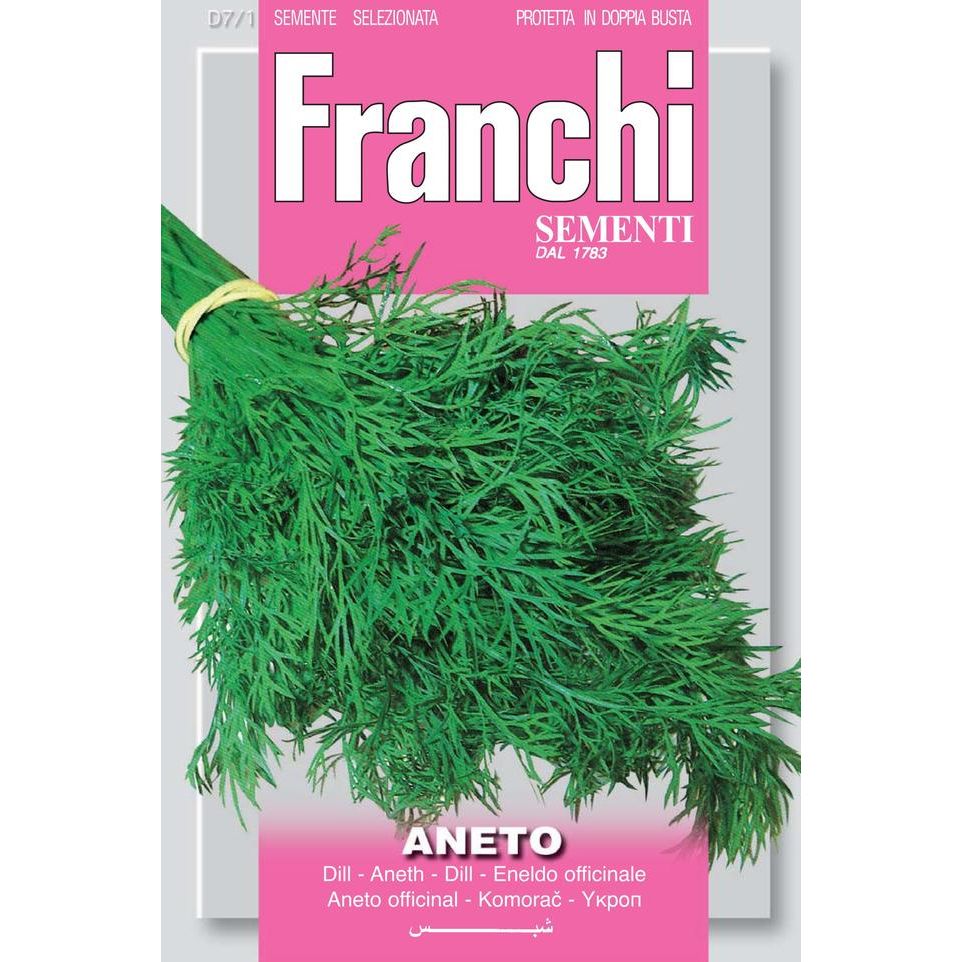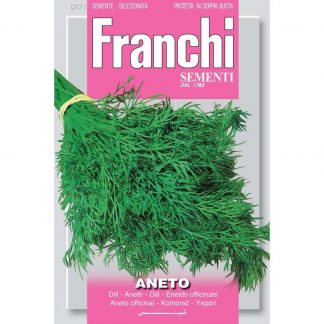Dill
£3.00
I use dill a lot in the kitchen; a favourite dish of courgette, dill and feta fritters – goodness, just typing those words makes me hungry. It’s so pretty as well, feathery fronds of dark green pep up a plate, scatter over a frittata (the green against the pale yellow is gorgeous)
An annual herb and very easy to grow. It was so important in Roman times, it was issued as standard to every garrison. The taste is strong and similar to the fennel.
The dried seeds are used as seasoning or in spirits. The fresh leaves are great with fish and soups and to make Gravadlax.
| Common name | Dill |
|---|---|
| Quantity | 3600 |
| Planting outdoors | Mar to Jun |
|---|---|
| Planting | Avoid growing dill near fennel, as the two can cross breed, not so good!! |
| Thinning | Eat the thinnings!! |
| Light | Full sun |
| Watering | Regular watering, not overdone |
| Caring | Dill doesn't like being transplanted, so sow the seeds where you want it to grow. |
| Pests | Aphids: Grrrr Pinch out infested tips, or use a water and soap solution to spray on the aphid - we make an insecticide with the Black soap from Aleppo |
| Eating | Medicinal: The seed is said to having a relaxing effect on muscles; in fact its name comes from the Norse dilla meaning 'to lull'. Eating: A key ingredient in pickles, it is a common ingredient in eastern European cookery. It works very well with potatoes; a Polish new potato salad isn't complete with out it. Or for an Indian approach, take cubes of potato fried with garlic, turmeric and chili, then toss them with plenty of dill. |
|---|

